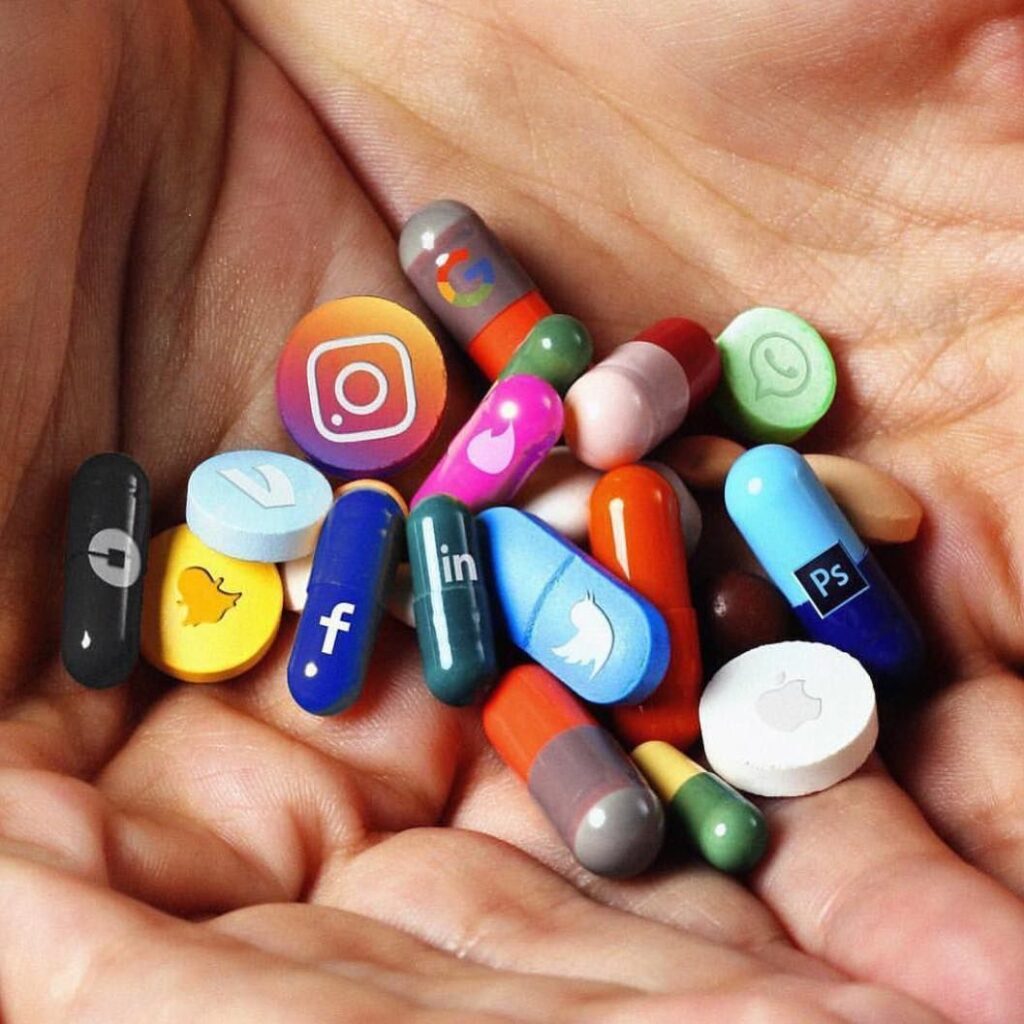
What is Digital Addiction?
Digital addiction, also known as technology addiction or screen addiction, refers to the excessive and compulsive use of digital devices and online activities, leading to negative consequences in various aspects of life. It involves a dependency on digital technologies, such as smartphones, computers, social media, and online gaming, to the extent that it interferes with daily responsibilities, relationships, and overall well-being.
Digital addiction can manifest in different forms, including internet addiction, gaming addiction, and social media addiction. It often involves a loss of control over the use of digital devices, resulting in detrimental effects on mental health, physical health, and overall life satisfaction.
Symptoms of Digital Addiction
Identifying the symptoms of digital addiction is crucial for individuals and those around them. Common signs include:
1. Excessive Screen Time: Spending an inordinate amount of time on digital devices, often at the expense of other activities.
2. Neglect of Responsibilities: Neglecting responsibilities at work, school, or home due to excessive digital use.
3. Withdrawal Symptoms: Experiencing irritability, restlessness, or anxiety when unable to access digital devices.
4. Social Isolation: Withdrawing from face-to-face interactions in favor of online activities, leading to social isolation.
5. Impact on Mental Health: Experiencing mood swings, depression, or anxiety related to digital use.
6. Physical Health Issues: Encountering physical health problems such as eye strain, sleep disturbances, or posture-related issues due to prolonged screen time.
How to Cope Up from Digital Addiction
1. Set Digital Boundaries: Establish clear boundaries for digital usage, including specific times for device-free activities and breaks from screens.
2. Digital Detox: Periodically engage in digital detoxes by disconnecting from devices for a defined period. Use this time to focus on other activities and relationships.
3. Seek Professional Help: If digital addiction significantly impacts daily life, consider seeking the assistance of mental health professionals who specialize in behavioral addictions.
4. Create Healthy Habits: Cultivate healthy habits, such as regular exercise, outdoor activities, and mindfulness practices, to balance digital use.
5. Build Real-world Connections: Invest time in building and maintaining relationships offline. Participate in face-to-face social activities to foster genuine connections.
6. Educate Yourself: Learn about the potential negative effects of digital addiction and the benefits of a balanced approach to technology use.
Understanding the Role of Counselors
Counseling for digital addiction involves recognizing and addressing the underlying issues contributing to the addictive behaviors. Counselors work with individuals to explore the reasons behind excessive digital use, such as escapism, social validation, or fear of missing out (FOMO). The goal is to establish a healthier relationship with technology.


How We Help
Our digital addiction counseling services are designed to assist individuals in regaining control over their digital habits and fostering a more balanced lifestyle.
Assessing Digital Habits
Understanding one’s digital habits is a crucial first step in addressing digital addiction. Our counselors collaborate with individuals to assess their usage patterns, identifying specific behaviors that contribute to the addiction. This assessment forms the foundation for developing targeted strategies for healthier digital engagement.
Establishing Boundaries
Digital addiction often stems from a lack of boundaries in the use of technology. Our counseling sessions focus on helping individuals set clear and realistic boundaries for digital use. This may include designated “unplugged” times, creating tech-free zones, and establishing guidelines for social media consumption. These boundaries aim to restore a sense of balance and control.
Developing Healthy Coping Mechanisms
Many individuals turn to digital devices as a coping mechanism for stress, boredom, or other emotional challenges. Our counselors work with individuals to identify healthier coping mechanisms that fulfill emotional needs without reliance on excessive digital usage. This may involve exploring hobbies, engaging in physical activities, or enhancing interpersonal connections.
Promoting Digital Detox Strategies
A digital detox involves intentionally disconnecting from digital devices for a specified period. Our counselors guide individuals in implementing effective digital detox strategies tailored to their lifestyle. This may include periodic breaks from social media, setting smartphone curfews, or participating in offline activities to foster a healthier balance between the digital and physical worlds.
Encouraging Mindful Technology Use
Mindfulness techniques are incorporated to promote awareness of one’s digital behaviors. By fostering a mindful approach to technology use, individuals can become more conscious of the impact of their digital habits on their overall well-being. This awareness lays the groundwork for intentional and purposeful engagement with digital devices.
Conclusion
In conclusion, our digital addiction counseling services are designed to address the complex challenges associated with excessive technology use. Through assessing digital habits, establishing boundaries, developing healthy coping mechanisms, promoting digital detox strategies, and encouraging mindful technology use, we aim to guide individuals towards a more balanced and fulfilling relationship with digital devices.
